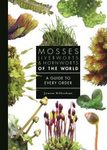By
Leon (NHBS Catalogue Editor)
1 Mar 2019
Written for Hardback

Of all the threats to free scientific enquiry, there is one that is perhaps not put on the foreground as much as it should be: the pressure of scientific findings to have immediate, practical applications. In the current climate of chronic funding shortages and anti-scientific sentiments that flourish in both society and politics, it is a problem that is overtaken by more urgent concerns. But just as the delay in developing new antibiotics due to the costs of R&D will cause severe problems in the long term, so this intellectual straitjacket will have long-term consequences that are not immediately apparent. This slim volume shows these concerns are far from new. In fact, they were at the roots of the founding of a remarkable institute.
The author of the 1939 essay
The Usefulness of Useless Knowledge, Abraham Flexner (1866-1959), was also the founding father of the Institute of Advanced Study in Princeton, New Jersey, established in 1930. Its mission is to be a temple of unrestricted scholarship, an intellectual playground, and a haven for unfettered fundamental research. With World War II looming and many intellectuals fleeing Europe, it quickly ended up hosting scientific luminaries such as Einstein and Gödel. The institute still flourishes, and Princeton University Press has repackaged Flexner’s essay with a companion piece by the institute’s current director, the Dutch mathematical physicst Robbert Dijkgraaf. He introduces both Flexner, the institute, and the essay, and shows how it has relevance to this day.
To your average citizen, the question what the point is of unfettered academic freedom seems like a reasonable one. Why allow money to be spent on basic research that has no utility? Dijkgraaf quotes British chemist George Porter, who spoke of applied and “not-yet-applied” research. Other than the satisfaction of simple intellectual curiosity, it is often completely unpredictable what use certain knowledge will have years, sometimes decades later.
Both when Flexner’s essay was published in 1939 and today, it is easy to find examples of this. Given their backgrounds, the authors heavily lean on the field of physics for their examples. Nobody could have foreseen that the abstract discipline of quantum mechanics allowed for the development of microprocessors and thus computers. Or that Einstein’s theory of relativity allows our GPS devices to remain accurate day by day. Similar chance findings gave us germ theory and vaccines. And who could have foreseen that basic research on unusual repeated patterns in bacterial DNA would lead to the recent development of the gene-editing tool CRISPR (see my review of
A Crack in Creation)?
Detractors might argue that fundamental research is a colossal waste of intellectual capacity at a time when we have urgent problems. Neither Flexner back then, nor Dijkgraaf now argue that applied research has no place. But we need both strategies, we need to bet on both horses – in the long-term, new inventions and new solutions to the world’s problems can only come into existence if people have the option and freedom to try, to tinker, and to fail. At the root of every useful invention is the pursuit of (what was initially perceived as) useless knowledge. As Firestein also argues in
Failure: Why Science is So Successful, yes, in the process we will waste time and money – some research will never result in anything “useful”. But the payoff when we hit on something is tremendous. We need to be willing to take that risk, and willing to accept that there will be some wastage along the way. As the Dutch say: “Waar gehakt wordt, vallen spaanders” – I’m sure Dijkgraaf knows what I mean. And, I would add, it is the fundamental nature of ignorance that we cannot predict what will be useful down the road (see also
Ignorance: How It Drives Science and my review of
Understanding Ignorance).
The 1930s were of course also a time when advances in physics gave us the atom bomb. Flexner and Dijkgraaf resolutely oppose this line of reasoning. Knowledge is a tool, a tool that can be wielded for better or for worse. A hammer can be used to hang a painting or cave in someone’s skull. Does that make metallurgy an evil invention? In my opinion, the responsibility is with the wielder of the tool, and that requires wisdom, maturity, and foresight on their part. These virtues can only flourish in a society where education and intellectual freedom are nourished. It is refreshing to see Flexner expand his thinking to the arts and humanities as well, and call for tolerance “throughout the range of human dissimilarities”, whether that is ethnicity or religion.
Flexner’s essay remains relevant and readable to this day. So read this book. Whether you’re a PhD student who feels overwhelmed by their project or a tenured professor with a track record. Read it if you’re curious. Gift it to your philosophically inclined family member or friend who you don’t know what to get for their birthday (at this price, the book is a steal). Read it if you’re confused. At less than a hundred pages, you’ll breeze through this in no time. Read it and rebel. Put a copy on the desk of university administrators, for they have the power to create places like the Institute of Advanced Study where bright minds can gather and focus. Read it and spread the word. To tackle today's wicked problems – from climate change to health care – we need science-literate citizens who understand why science works the way it does. And if you’re still not convinced, a book like
Science Unshackled will give you plenty more examples of why the title of Flexner’s essay still rings true.


































